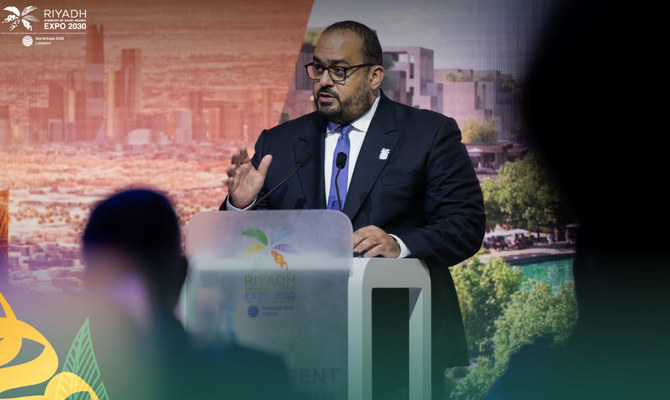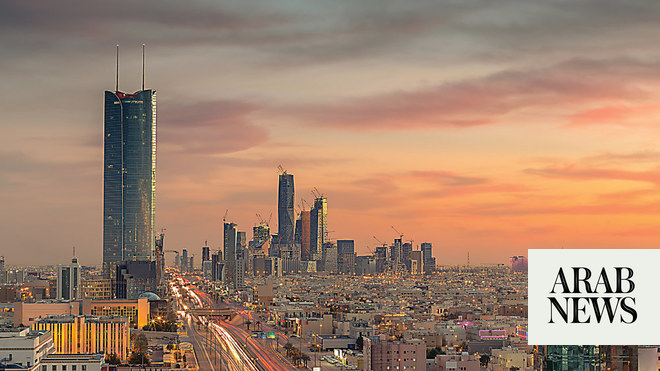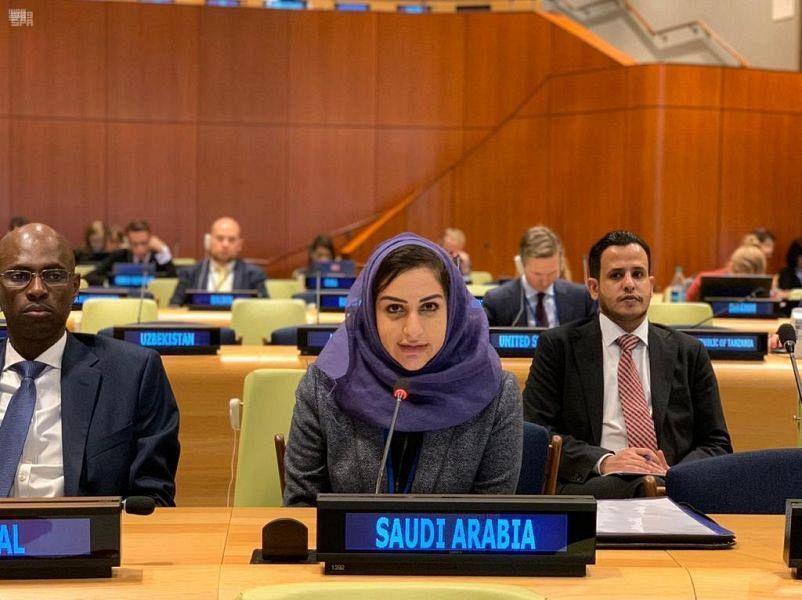
The country-wide celebrations of Saudi Arabia’s national day on Sunday took place in the context of rapid change in the Kingdom. How does the current moment, marked by the socio-economic reforms projected by Vision 2030, tie in with and stand in comparison to other critical stages of Saudi Arabia’s history?
It is always superficial to reduce the complex history of a country to a few episodes. This rings particularly true in the case of the eventful emergence of the modern Saudi state, also known as the third Saudi state. But there are inescapable landmarks and 1932 was certainly one of them. That year, King Abdul Aziz founded modern Saudi Arabia, although the UK had already recognized the independence of the Kingdom of Hejaz and Najd five years earlier. Also in 1932, a discovery was made that would eventually change the Kingdom forever.
Harry St. John Philby, a British colonial officer and Arabist who would convert to Islam and become personal adviser to King Abdul Aziz, convinced the ruler to meet an American millionaire, Charles Crane. Crane presented himself as a philanthropist traveling in the region at the time. It happens that Crane was looking for opportunities for US oil companies, and one of the geologists working for him, Karl S. Twitchell, found evidence of a geological structure that pointed to the presence of oil reserves in Dhahran, Eastern Province.
In less than a decade, development and then production were at full steam and Saudi Arabia’s geostrategic importance grew accordingly. In the space of 20 years, oil extraction went from half a million barrels in 1938 to more than 380 million by 1958.
Former Minister of Petroleum and Mineral Resources Ali Al-Naimi is a living example of the transformation brought about by oil. He was a 12-year-old shepherd when his older brother took him along to the Arabian-American Oil Company (Aramco). He studied in the company-run schools, worked as an errand boy, studied at the American University of Beirut and completed a master’s degree at Stanford University. Al-Naimi rose through the ranks of what would become one of the world’s most valuable companies, eventually being appointed as Aramco’s first Saudi president and then CEO. In his visits to the US to talk oil prices and the future of the industry, or Vienna for OPEC meetings, he received celebrity treatment by tFollowing the 1973 Arab oil embargo in response to Western support for Israel in the Arab-Israeli War, oil prices went up from $3 to $12 in one year. From this point, Saudi Arabia’s large and poor population started to feel the benefits of the country’s oil largesse.
With oil came all sorts of benefits and subsidies. However, as often noted, it also nurtured an economy and a society too reliant on the “black gold” or with, in the words of Crown Prince Mohammed bin Salman, the architect of Vision 2030, an “addiction” to it.
The 1970s was a turbulent decade. King Faisal’s reign, marked by fast economic development, the modernization of state institutions and inclusiveness, reached an abrupt end with his assassination in 1975. Four years later, a group of extremists from more than 12 countries stormed the Grand Mosque in Makkah. The fighting lasted for two weeks, involving Pakistani and French commandos in support of Saudi forces, leaving hundreds dead, including some of the tens of thousands of worshippers that had been trapped inside. The lasting impact of this tragic episode was a reversal of the progress made under King Faisal in the 1970s, particularly when it came to tolerance, inclusiveness and openness.
Since the Grand Mosque siege, Saudi Arabia has faced a few serious threats, including the radical agenda of the ayatollahs’ regime in Tehran vowing to bring down US allies in the region, and the military misadventures of Iraq’s Saddam Hussein. The Kingdom suffered various terrorist attacks, some of them on a large scale, such as the bombing of the Khobar Towers in 1996 and the Riyadh compound bombings of 2003. But an even greater shock came when 15 Saudi nationals were directly involved in the Sept. 11 terrorist attacks.
The late King Abdullah identified education as a key priority from the beginning of his reign. The King Abdullah Scholarship Program was launched in his first year as ruler, going from 15,000 students on scholarships in 2005 to more than 130,000 by 2013, 20 percent of whom were women. In 2014, 25 percent of the national budget was allocated to education.
This gigantic investment in education had multiple goals: To provide opportunities to Saudi Arabia’s booming young population and broaden their horizons; to fix critical flaws in the sector; to break the economy’s reliance on oil; to resolve the acute shortage of high-skilled workers; and to begin addressing the absence of women in the workforce.
Some of the seeds of Vision 2030 are present in this focus on education under King Abdullah. However, the plan launched two years ago is unparalleled not only in its ambition and scope, but also in the drive of the people pushing it forward, which is reflected in the way progress and targets are measured and assessed to a great level of detail.
For those who visited Saudi Arabia prior to 2016, today’s changes and their pace would have been inconceivable just a couple of years ago. The list is endless, from the return of music concerts and the reopening of movie theaters, to women being appointed to government positions and being allowed to drive, the stripping of power of the religious police, or a focus on renewable energy (such as the mega-city Neom, to be fully powered by renewable sources).
Vision 2030 has intentionally rocked the boat in Saudi Arabia and generated much commentary and debate: Some are critical or skeptical that it can achieve much of what it proposes to do, while many others are positive and enthusiastic. What is certain is that it is already a milestone in modern Saudi history.
Manuel Almeida, Ph.D., is a visiting fellow at the Middle East Centre of the London School of Economics and Political Science, where his research focuses on social contract in the Arab state and its impact on governance and sustainable development. He is also partner at Firma, covering emerging markets and geopolitical risk. Twitter: @_ManuelAlmeida
Disclaimer: Views expressed by writers in this section are their own and do not necessarily reflect Arab News" point-of-viewhe press.








